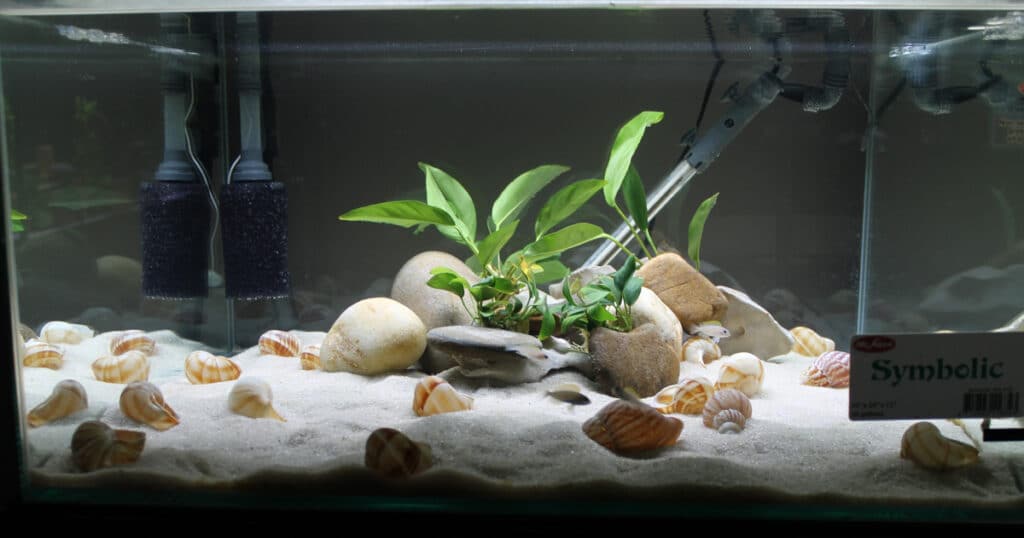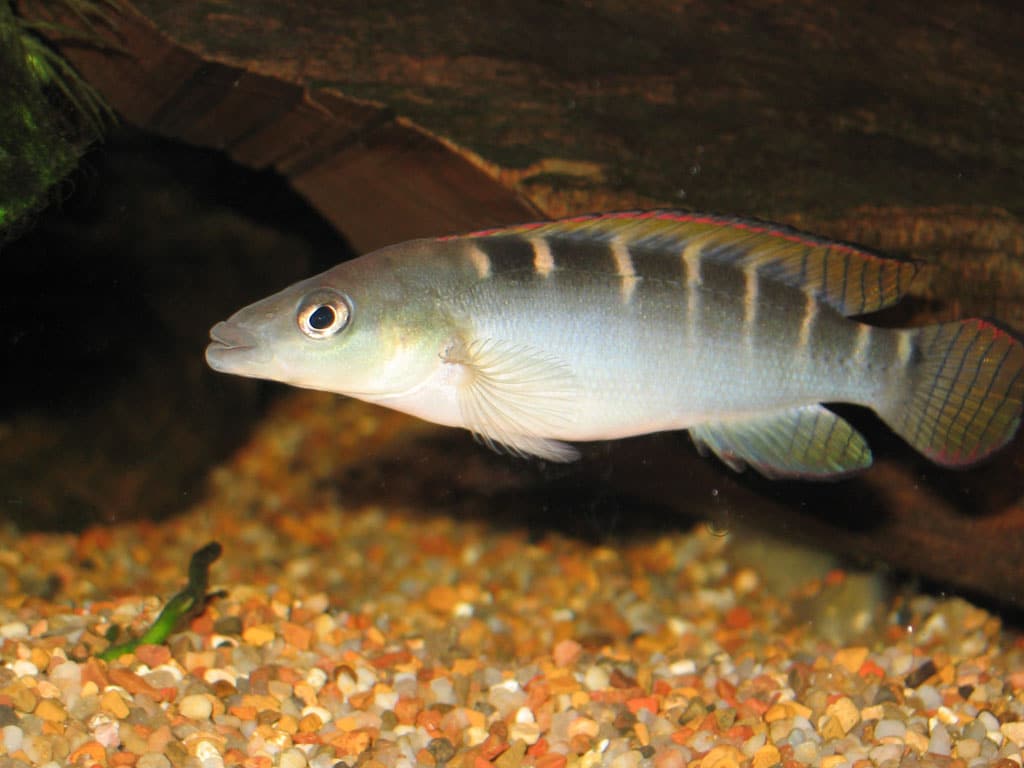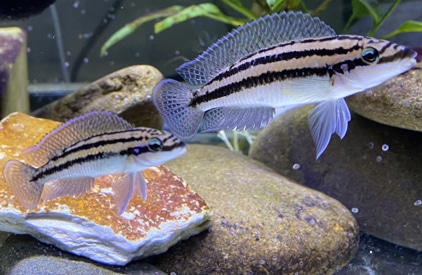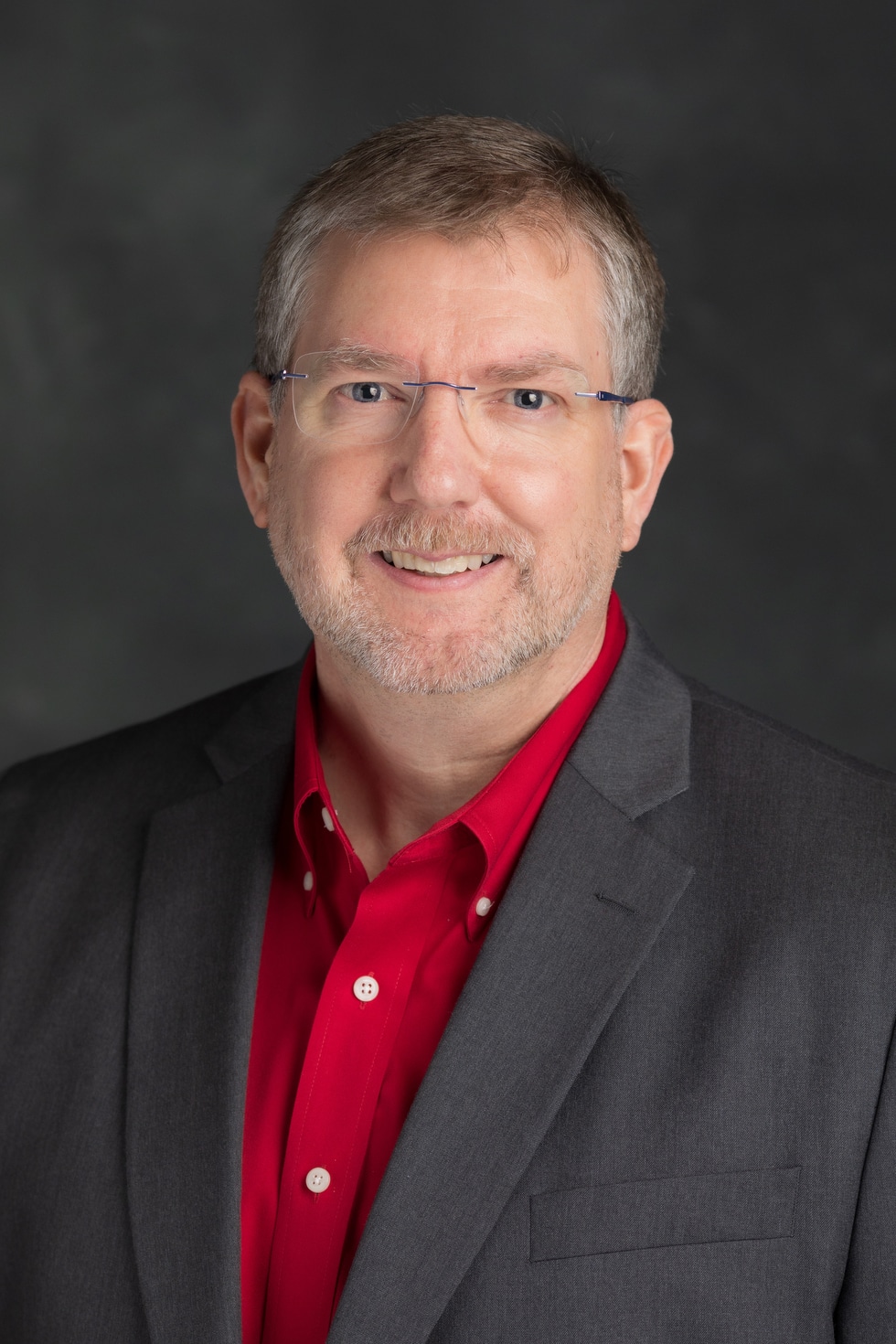Scott Wells (’89, ’96, ’13) is a proud alumnus of the University of Tennessee, Knoxville, where he serves as the chief of staff for the Min H. Kao Department of Electrical Engineering and Computer Science. He has earned his bachelor’s, master’s, and PhD from UT. Wells graduated with his master’s degree in information sciences in 1996, which allowed him to merge his two passions: writing and science. In his free time, he enjoys working on his blog, The Cichlid Stage.
Education and Career
Wells earned his bachelor’s degree in English, focusing on business and professional writing, in 1989. After graduating, he entered the field of transportation management, a career unrelated to his degree. While he recognized that the job was not his long-term path, he was unsure of what direction to take.
“My bachelor’s degree is in English, and I have always been interested in science,” he explained. “I wanted to pursue something different. So, I talked to one of my professors from the English Department about my interests, and he suggested, ‘Have you considered speaking with anyone at the School of Information Sciences?’”
Wells applied to the information sciences master’s program and was accepted. Near the end of his studies, a classmate informed him about an open research associate position in UT’s Department of Electrical Engineering and Computer Science. He applied and secured the job.
“I worked my way up and was promoted two or three times,” Wells noted.
While working full-time at the Electrical Engineering and Computer Science Department, Wells decided to pursue his PhD.
“I obtained my PhD in Communication and Information with a concentration in journalism and electronic media,” he stated. “Fortunately, the leadership at the department supported my decision to work while pursuing my degree. After earning my PhD, new opportunities arose, and one thing led to another, eventually bringing me to my current position.”
Wells believes his degrees have been instrumental in advancing his career and supporting his passion as a cichlid enthusiast.
Finding a Passion for Cichlids
Wells grew up with a fish tank in his home but didn’t develop a passion for fishkeeping until much later in life.
“My father had a fish tank when I was younger, and while it was interesting, it wasn’t a defining moment for me. I didn’t tell myself I would have fish tanks when I got older,” Wells explained. “However, I had a coworker in the research lab I worked in at UT who kept fish. One day, I started asking him questions about it. We struck up a close friendship, and we’re still good friends today.”

After learning more about his friend’s fish tank, Wells decided to get his first tank and began keeping various types of tropical freshwater fish. That was almost 25 years ago.
“I tend to dive into things headfirst and become very dedicated to what I’m doing,” he said.
Wells then started researching a particular type of fish known as Cichlidae, or cichlids. Cichlids are a family of tropical freshwater fish found all over the world.
“There are about 1,700 identified species, with possibly another 1,500 yet to be discovered,” he explained.
Wells visited a local fish store in Knoxville and purchased his first cichlid.
“I quickly noticed a significant difference between cichlids and typical tropical freshwater fish. Cichlids often have individual personalities, like dogs and cats; they can recognize you and come to the front of the tank when it’s time to feed them. They exhibit behaviors that normal fish don’t, which specifically their parenting behavior I found fascinating,” he said.

Starting with just one fish tank, Wells now has nine, each filled with different cichlid breeds.
“I began to learn more, and I probably pestered many people in the cichlid community because I wanted to expand my knowledge. I read literature and reached out to others once I discovered online communities. Thank goodness for the internet! I thought, ‘If I have a question about this, I believe this person can help me.’ Over the years, I became a better fish keeper,” Wells stated.
Wanting to share the knowledge he gained from others, Wells thought their stories should also be told. That’s when he came up with the idea of starting his blog dedicated to cichlids.
Developing a Blog
Wells started his blog nearly 10 years ago to share his knowledge and experiences with fellow fish enthusiasts.
“I thought maybe some of what I’m doing could help others, just like I needed help when I was beginning. Perhaps it would serve as a resource for them,” he explained.
He has been involved in several formal cichlid groups and clubs across the United States. He’s even written articles for leading cichlid journals. Through attending conventions, he has connected with cichlid keepers from around the world. As he became more engaged in the community, he developed relationships with individuals he would eventually interview for his blog.
Wells’s blog encompasses a variety of topics, from aquarium livestock and equipment to valuable resources for fellow hobbyists. Occasionally, he interviews cichlid and aquarium experts to provide additional insights. His goal is to share interesting industry news, personal fish-keeping experiences, and advice gathered from other aquarists.

“I thought people might want to know more about these individuals and their fish-keeping journeys—not just about the species they keep specifically, but also their thoughts on fish-keeping and how they got started,” he said.
Wells utilized skills acquired in his information sciences program, such as website building, to develop his blog. His journalism training also helped him create content that emphasizes usability and the relevance of information. He notes his education has made him a better communicator and hobbyist.
“It’s like the perfect combination,” he explained. “My education has been beneficial in many aspects. I recall one class in the information sciences program focused on website building, and I was able to apply what I learned there. I also had a professor at SIS, Dr. Robinson, who was a collections specialist. I use the information I learned from his library collections course today, both in my job and as a blogger.”
Wells is aware he could have shared his passion through various forms of media, but he chose a blog because of his love for English, information sciences, and journalism. He notes that his blog is the most popular blog about cichlids, based on search returns.
“My dissertation focused on the connection between scientists and the mass media,” he shared. “To be successful in that area, you need to apply what you’ve learned, although it doesn’t always have to be explicit.”
He expresses immense gratitude for the degrees he earned at UT, stating that they have allowed him to advance in his career and gain a deeper understanding of how to explore his passions outside of work. Wells hopes to start a cichlid club in Knoxville and encourages others to pursue their interests and hobbies alongside their professional careers.

